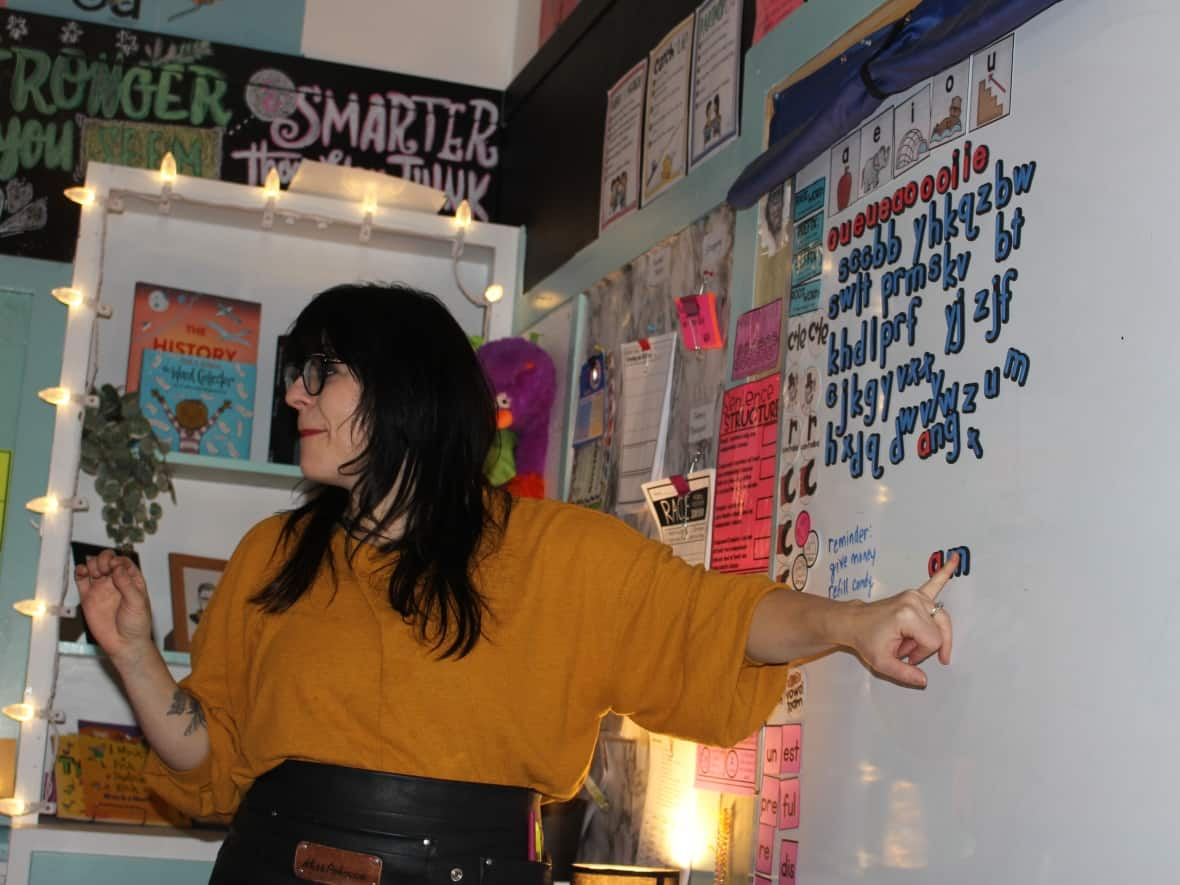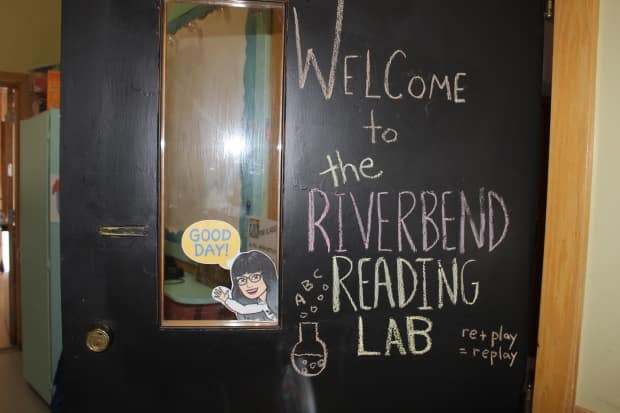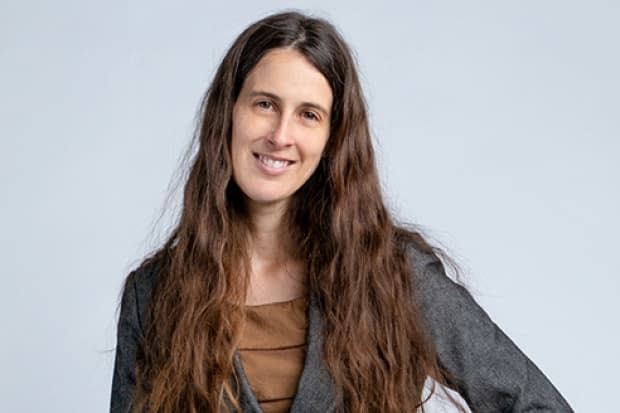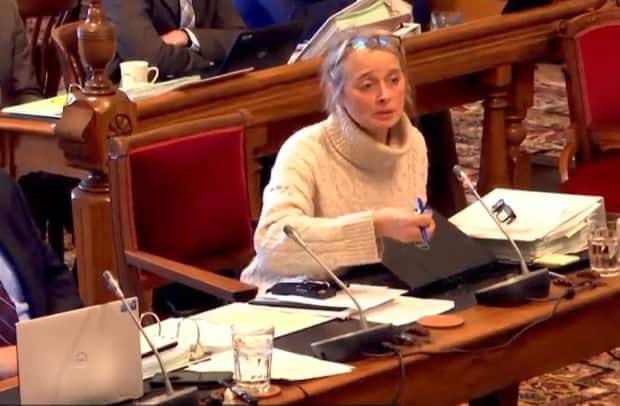The way we teach kids to read is changing — but will it work?

All New Brunswick students will be taught to read in a new way this September, when a new curriculum is rolled out in kindergarten, Grade 1 and Grade 2 anglophone classrooms.
The province has long struggled with low literacy rates. The most recent test results show just 59.5 per cent of Grade 4 students met the desired standard for reading in 2021-22.
The new curriculum from the Department of Education is called Building Blocks of Reading. It moves away from an approach known in teaching circles as balanced literacy, to a new approach known as the science of reading.
It's a change that's already been made by some educators outside the New Brunswick public school system and is already having success.
The science of reading
Rebecca Halliday has been teaching and tutoring for 13 years. She is the director of Riverbend Community School in Riverview, an independent private school.
Halliday was taught the balanced literacy approach when she was in university earning her education degree.

Introduced in the 1990s, balanced literacy uses what is known as the cueing system, where students are taught to look at the pictures in a book, look at the first letter of a word, or think about what word might make sense, before guessing what the word might be.
It is also centred on the idea that students who are surrounded by books ,and who are read to, will become readers.
Halliday quit using that approach five years ago because it encouraged students "to be guessers" rather than readers. She said lessons included teaching students "what a great reader looks like," rather than "explicit" instruction in how to decode language.
"And you've got these kindergarteners with maybe a book upside-down acting like a good reader, not actually reading," she said.
"Balanced literacy was — if you read to them long enough and if you expose them to books and to wonderful literature, they'll learn to read. And that's simply not true."
Halliday has moved to teaching based on the science of reading.

She spends hours every day working with her 16 students in Grades 2 to 6 on how words are built, how they sound, and how to put the pieces together to be a reader and writer.
Standing in front of her classroom, which she calls "the reading lab," Halliday holds up cards with different combinations of letters and asks "A-R says?" or "this is a tricky one: D-G-E" as a chorus of children calls out the answers.
Julie Smith, executive director of Elementary Literacy, has also made the switch from balanced literacy to the science of reading.
The New Brunswick charity is focused on tutoring students in Grade 2 and has completely revamped the way it teaches struggling Grade 2 readers.
Balanced literacy, she said, "left a lot to basically osmosis" to teach children, but the new process is "based on 30 years of evidence on how children actually learn to read."
She said the change means their volunteer tutors are now teaching lessons that "are much more precise and scripted."

In addition to breaking down the different parts of a word, Riverbend and Elementary Literacy have moved away from so-called levelled books, which encourage memorization, to what are known as decodable books.
Smith uses the example of a levelled book her niece brought home from school in Grade 1. The character in the book was named Anastasia, not a word any child that age would know.
"Think about Anastasia. That is not a very decodable word — without memory that is not accessible," she said.
Decodable books, however, focus on one sound that students have already been taught, such as all words that include the letters S-H.
Without those building blocks, Smith said, students are just memorizing, and when texts become more complex and no longer have pictures many struggle.
"Once you get to Grade 4, you have tapped out the ability to memorize and it's not an effective strategy anymore — you need to have the tools to tackle language."
Halliday added that not being able to read leads to many other problems for children in middle and high school.
"That guesser in middle school ends up becoming a kid who's really, really mad by high school and often wants to drop out or doesn't finish because they learned to guess words in elementary school," she said.
"We are not born with the ability to read. It's a very explicit, direct skill that needs to be taught."
Department says change was needed
Education Department officials appeared before the public accounts committee Jan 20 and answered questions about the new literacy curriculum.
Kimberly Bauer, director of learning and achievement for the department, said it's been in the works since 2015.
"We were doing work around the province and teachers were telling us that they didn't have the information they needed to respond when a child wasn't learning to read," she said.

In the years since, research has been completed and materials have been developed.
Bauer said the new curriculum will be rolled out to all schools in September, with kindergarten to Grade 2 teachers "on track" to complete their professional training in the new approach by June.
However, she said, as the training has been completed, some teachers have already been implementing the new approach.
CBC News asked for an interview with someone from the Education Department, but no one was made available.
Instead, spokesperson Morgan Bell sent a statement that reads in part: "Change in the curriculum was needed as a percentage of children were not properly decoding and understanding text."
On Tuesday, in part two of this series, students who struggled with literacy in public school will share their stories and education officials will share the early results from schools that have piloted the new curriculum. We'll also hear why not everyone is convinced this new way of teaching students to read will cure what ails New Brunswick's education system.


